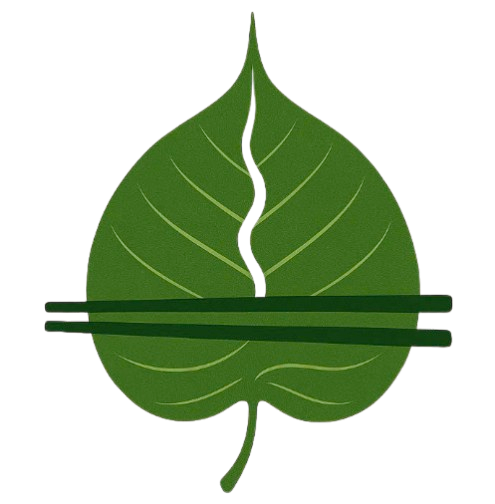Crazy Time Bangladesh: The Evolution of Festivals Over Time
Bangladesh is a land of vibrant traditions and rich cultural heritage, and its festivals illustrate the evolution of societal values and collective identity across time. From age-old harvest celebrations to contemporary festivities that reflect globalization, the evolution of festivals in Bangladesh epitomizes the country’s dynamic cultural landscape. This article will examine how festivals in Bangladesh have transformed over the years, showcasing their historical significance, variations across regions, and the impact of modern influences.
Historical Significance of Festivals
Festivals in Bangladesh have a deep-rooted significance that dates back to ancient civilizations. Historically, these celebrations were tied to agrarian cycles and religious observances, offering communities a means to connect with nature and their spiritual beliefs. From the vibrant celebration of Pohela Boishakh, marking the Bengali New Year, to the religious festivities of Eid-ul-Fitr and Durga Puja, these events served as a way to foster community bonds.
Over time, the cultural identity of Bangladesh has evolved, influencing the themes and practices associated with these festivals. The festivals not only showcase religious diversity but also highlight local traditions and historical narratives. Despite the influence of colonization and modernization, the resilience of these traditions remains strong, keeping the essence of community and belonging alive. The preservation of rituals and customs serves as a testament to the cultural richness that defines Bangladesh play Glory Casino Crazy Time.
Regional Variations in Celebration
Bangladesh is dotted with diverse ethnic communities, each contributing to the festival calendar in unique ways. While some festivals are celebrated uniformly across the nation, others reflect the local customs, languages, and practices, giving rise to regional variations. Notable examples include:
- Rath Jatra: Celebrated predominantly in coastal areas, this festival showcases the traditional chariot procession of Hindu deities.
- Poush Mela: A vibrant fair held in rural regions during the month of Poush, celebrating the harvest season with music, food, and dance.
- Ekushey Book Fair: Though rooted in the language movement, this month-long festival in Dhaka has evolved to become a literary celebration embraced nationwide.
These regional nuances not only enrich the festival landscape but also foster a deeper understanding of the cultural interplay within the country. They emphasize the importance of community identity while celebrating diversity and unity in Bangladesh.
The Impact of Modernization and Globalization
In recent decades, the impact of modernization and globalization has dramatically reshaped the character of festivals in Bangladesh. The influences of Western culture, technology, and social media have introduced new elements into traditional practices. For instance, festivals like Pohela Boishakh now feature large-scale concerts and fashion parades unprecedented in earlier times, attracting younger audiences.
Modern commerce has also influenced the way festivals are celebrated, with businesses capitalizing on these occasions for marketing opportunities. This commercialization often leads to a mix of traditional values and contemporary trends, inviting debates about authenticity and the preservation of cultural heritage. As internationalism shapes societal norms, Bangladeshi festivals continue to evolve while maintaining the threads of their historical essence.
Cultural Preservation Amidst Change
As festivals transform, the need to balance cultural preservation with innovation becomes paramount. Organizations and cultural activists are increasingly advocating for practices that honor the origins of these celebrations while adapting them to contemporary times. Efforts to document oral histories, traditional crafts, and local folklore are gaining traction, thus ensuring that the rich tapestry of Bangladesh’s cultural heritage is not overshadowed by modernization.
Additionally, festivals are being re-envisioned as platforms for cultural exchange, prompting engagement among diverse communities and fostering a sense of belonging. Initiatives aimed at promoting eco-friendly celebrations, artisan crafts, and authentic cuisine are now becoming integral components to preserve the essence of these festivals.
Conclusion
The evolution of festivals in Bangladesh is a reflection of the country’s rich history, diverse communities, and the interplay between tradition and modernity. As society continues to change, so too will the ways in which these festivals are celebrated. However, the commitment to preserving cultural heritage offers hope that the spirit of community, significance of history, and the richness of the traditions will endure. Embracing both the old and the new, Bangladesh’s festivals are poised to continue their journey of evolution, creating vibrant experiences for generations to come.
FAQs
1. What are some major festivals celebrated in Bangladesh?
Some major festivals include Pohela Boishakh, Eid-ul-Fitr, Durga Puja, and Poush Mela, each reflecting different cultural and religious traditions.
2. How have modern influences affected traditional festivals?
Modern influences have brought new elements to traditional festivals, including commercialization, concert performances, and the use of social media for promotion and engagement.
3. Are there regional differences in how festivals are celebrated?
Yes, different regions often celebrate festivals in unique ways, incorporating local customs, languages, and practices that vary from one community to another.
4. What role do festivals play in preserving cultural heritage?
Festivals serve as vital opportunities for communities to express cultural identity, pass down traditions, and foster social cohesion through collective celebrations.
5. How do cultural activists contribute to festival celebrations?
Cultural activists work to document traditions, promote authentic practices, and advocate for sustainable celebrations that honor the heritage of Bangladesh’s festivals.
